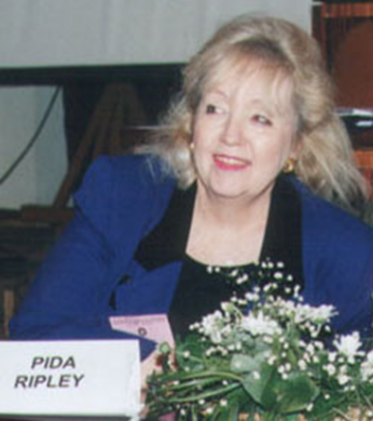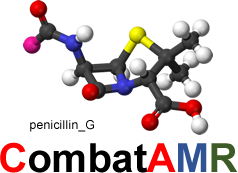
"Never underestimate the
importance of consumer groups
and civil society in combating
antimicrobial resistance.
They are the important movers,
shakers and frontline players,
especially in the eye of
social media."
Dr Margaret Chan.
World Health Organisation (WHO)
Director-General from 2007-2017

After many years of involvement in the health sector in various roles including serving as a Governor of both King’s College and The Royal Marsden hospitals and as a highly active Patient Safety Advocate, I have created CombatAMR.org as my personal contribution to help increase awareness of the dangerous developments as our antibiotics continue to lose their ability to combat increasingly resistant pathogenic bacteria.
In common with millions of other people around the world, I owe my life, several times over, to antibiotics countering illnesses that can kill; I survived pneumonia, peritonitis and septicaemia only because antibiotics were both available and effective. Most individuals and families have a similar experience to report. Yet the efficacy of these lifesaving drugs is taken for granted and every day, throughout the world, they are being overused with little thought.
Ninety years ago penicillin was discovered by Alexander Fleming, shockingly it took a further 15 years before the miraculous life-saving version was made available to ill patients suffering various infections. As Sir Alexander said "Penicillin sat on a shelf for 10 years while I was called a quack".
When Sir Alexander Fleming gave his Nobel Prize speech he warned against the overuse of penicillin as it would speed up the development of drug resistance by bacteria, a natural process. The world did not listen!
Today we are all standing on the threshold of a post-antibiotic age and the message from scientists, politicians and governments everywhere is that the antimicrobial resistance (AMR) problem facing the global community is very complex and there is no simple solution.
Antibiotics are a shared global resource and addressing the
growing threat of antimicrobial resistance is a shared responsibility.

Currently most people are unaware of the full extent of the risk posed by the increasing resistance to antibiotics. There is an urgent need to increase public knowledge and understanding of antimicrobial resistance and to develop civil society involvement in awareness raising, development and implementation of behavioural change and enhanced stewardship. We need to campaign for sustained and robust policy development with active partnerships at all levels and urge for substantial funding of co-ordinated international programmes to seek new antibiotics and develop alternative therapies.
The information provided in this website is extensive, pulls no punches - but also provides hope. There are trillions of good microbes which are so necessary to keep each of us in good health - and we need to protect them too. Rich or poor, young or old, we are all equally vulnerable. We ALL have a role to play at all levels of society, For the sake of our children and future generations, we have to find a solution.
I believe the vision and brilliance of human ingenuity will lead eventually to new therapeutics and innovative developments BUT there will be a lengthy period when many patients will lose their battle against drug resistant infections.
Now, as many bacterial organisms have acquired, or are acquiring, resistance to antimicrobial drugs, a global public health crisis is developing leading to an increase of deaths and associated healthcare costs. In the European Union alone there are approximately 33,000 (ECDC) patient deaths a year due to antimicrobial drug resistance (AMR). The related health-care costs of 2.5 million extra days in hospital are well over one billion euros annually.
More than 70 per cent of the bacteria that cause hospital-related infections are already resistant to at least one type of antibacterial drug. The World Health Organisation (WHO) estimates there are at least 480,000 individual cases of multi-drug resistant tuberculosis across the globe, resulting in over 150,000 deaths annually. An untreatable form of "super" gonorrhoea is spreading across the world and has been detected in Britain.
Current routine medical practice relies on antimicrobials to protect patients from infection and if urgent measures to address antimicrobial resistance are not taken we face an alarming return to 'the pre-antibiotic era'. Some leading experts, such as the Atlanta based Center for Disease Control & Prevention (CDC), declare we are already in a ‘post-antibiotic’ world.
“Antibiotic resistance is rising for many different pathogens that are threats to health,” said CDC Director Tom Frieden, M.D., M.P.H. “If we don’t act now, our medicine cabinet will be empty and we won’t have the antibiotics we need to save lives.”
Antimicrobial resistance develops because bacteria will naturally mutate and develop resilience in response to any threat posed. No antibiotic can last forever; they are a very special life-saving resource. Yet during the past decade we have fallen behind the 'mutation curve' and bacterial resilience has now become a serious and increasing global risk to human health.
This situation has developed due to a combination of four factors:
- Inappropriate antimicrobial access and prescription practices;
- Inadequate infection prevention and control practices;
- Reluctance of the pharmaceutical industry to commit further research and development for new antimicrobial agents, diagnostics and vaccines;
- Weak political commitment at both national and international levels.
Most governmental responses have been slow and inadequate - despite the adoption of resolutions on AMR by the World Health Assembly (1998, 2005) and the 2001 publication of the WHO global strategy on containment of antimicrobial resistance together with multiple recommendations to define and implement national policies, as well as numerous recommendations from international conferences and workshops. Quite simply, AMR was not awarded the sustained consideration and action required. There is now an urgent need for multisectorial planning and coordinated action on a global scale.
Belatedly governments are realizing the scale of risk to life. During the past decade there has been a marked increase in antimicrobial resistance to certain diseases and urgent policy changes need to be implemented.
Key actions required are
- Preventing infections and spread of disease
- Tracking resistance patterns
- Developing new antibiotics and diagnostic testing and alternative therapies.
- Improving antibiotic stewardship – the right dose, at the right time – is critical (as up to half of antibiotic use in humans and much of antibiotic use in animals is unnecessary).
However, in an era of budget cuts, action may be limited to a strategy of 'what is affordable' rather than what is 'required'. This would be a false economy for time is no longer on our side!
CombatAMR is a Call to Action – and each one of us has an important role to play. To meet the challenges of this serious health threat will require co-operation and re-education of the general public to change both behaviour and expectations in antibiotic customs. Success will depend upon developing wide-ranging partnerships of public and private sector organisations. We … the people, need to campaign for robust global policy development, support the formation of active partnerships at all levels and press for substantial funding of a co-ordinated international programme dedicated to searching for new antibiotics and developing alternative therapies.
Antibiotics are a shared precious global resource and we all
have a global responsibility to protect them by using
them sensibly and only when appropriate.
Antibiotics DO NOT WORK AGAINST VIRUSES - they are useless for colds and flu!
Take antibiotics ONLY when prescribed by your GP and complete the course.
Drug resistance is accelerated if you do not complete your full antibiotic course.
9 out of 10 GPs feel pressurised by their patients to prescribe unnecessary antibiotics.
Listen to your medical professional!
It is imperative to remember that antibiotics are a precious limited resource.
